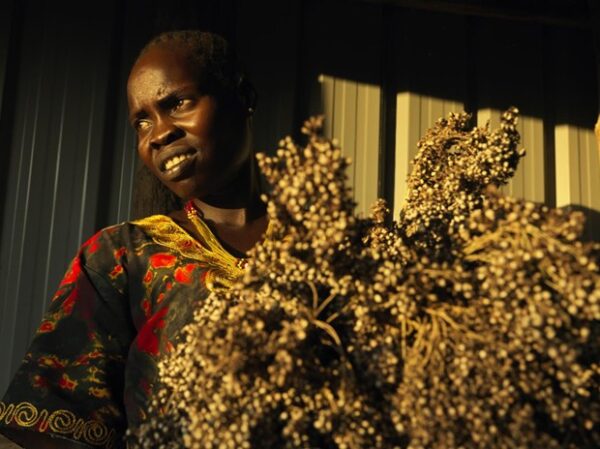The International Fund for Agricultural Development (IFAD), in collaboration with the Government of Zimbabwe and private sector partners, has launched the pilot phase of the Food and Agriculture Resilience Mission Pillar 3 (FARM P3), marking a significant step towards strengthening Zimbabwe’s sorghum value chain.
The initiative aims to reduce post-harvest losses of up to 30 per cent, boost smallholder farmers’ incomes, and attract private investment in sustainable mechanization.
By promoting youth-led service enterprises and fostering public-private partnerships, FARM P3 is set to enhance productivity, improve market access, and reinforce the resilience of Zimbabwe’s food systems amid growing climate challenges.
Unlocking value in Zimbabwe’s sorghum sector
Sorghum is one of Zimbabwe’s most important drought-resilient crops, and key to food security and climate resilience. However, many smallholder farmers still face challenges that limit its adoption, including the hard work required to process it, high post-harvest losses, and difficulties accessing stable markets because the grain they produce often does not meet buyers’ quality standards.
“Sorghum could be central to building Zimbabwe’s climate resilience, but it remains underutilised. By engaging private-sector partners from the start, the FARM P3 pilot opens a pathway to overcome these challenges and spread benefits across the country, supporting small-scale farmers to become more productive and more prosperous,” said Alex Nyakatsapa, the Senior Value Chain and Agribusiness Advisor of SACP.
Through FARM P3, IFAD and its partners will pilot mobile threshing and other mechanization services designed to reduce losses, increase yields, and link producer groups to formal off-takers and processors.
Creating opportunities across the value chain
The one-year pilot will engage about 6,000 smallholder farmers in key sorghum-producing districts and identify around 50 mechanization service providers, including youth and lead farmers. In collaboration with financial institutions and buyers, these entrepreneurs will be mentored to develop viable business models, access finance, and integrate into structured value chains. Rather than delivering mechanization services directly, the pilot focuses on identifying opportunities and creating the right conditions for effective service delivery. This focused 12-month intervention is designed to build a foundation for scaling up and ensuring long-term sustainability.
“Through FARM P3 we not only test equipment that raises smallholder incomes in Zimbabwe, but also work with buyers, financial institutions, youth entrepreneurs and farmers to build business models that create jobs and make mechanization affordable, profitable, and sustainable,” said Francesco Rispoli, IFAD Country Director.








